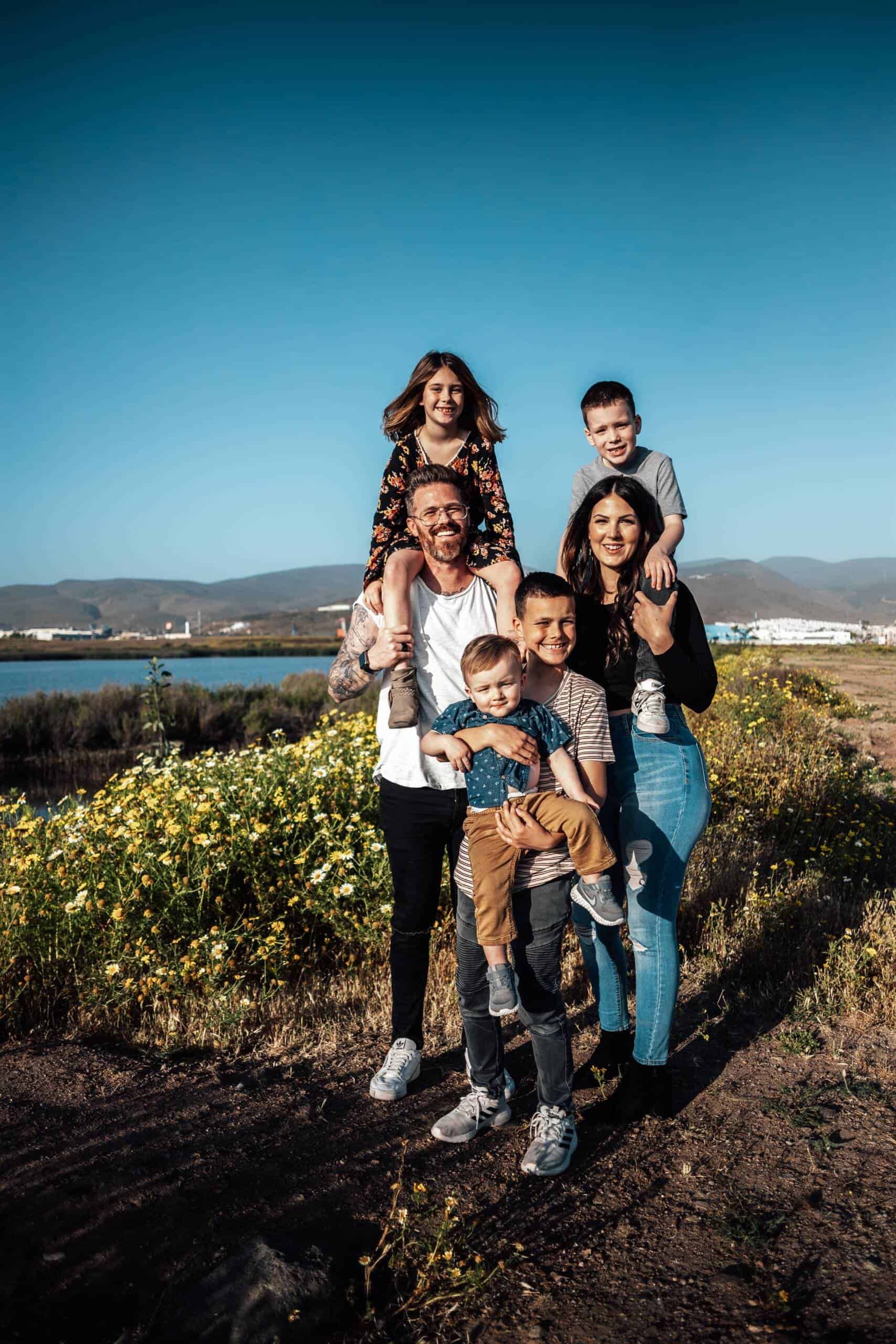Support For Families Of Addicts In Los Angeles, CA
Harmony Place Offers Support for Families of Addicts in Los Angeles
At Harmony Place, family involvement is core to our approach to helping our clients overcome addiction and achieve lifelong sobriety. No matter what the family’s role was in the individual’s addiction prior to treatment, they need support and education as a part of the healing process.
This is why we approach rehab as a family solution – not just a solution for the individual. We strive to educate our clients’ families on the disease of addiction and to help them assume new roles in their loved ones’ ongoing walk toward sobriety. Our solutions help provide support for families of addicts in the Los Angeles area.
“What is addiction, really? It is a sign, a signal, a symptom of distress. It is a language that tells us about a plight that must be understood.” – Alice Miller

Family Therapy for Addiction Recovery at Harmony Place
Harmony Place offers therapy sessions, psychoeducation, and support for families of addicts in Los Angeles. If the family isn’t on the same page about their loved one’s recovery at the start of treatment, our goal is to get them there. Family support can be a unifying force to support long-term recovery.
In most cases, trust was lost during the active addiction, so family therapy helps the family unit repair ruptures in relationships and prepare for the client to re-enter the home following treatment.
A primary therapist will work with the family to improve communication and change manipulative patterns of interaction. When appropriate, the therapist will invite the family members to participate in family therapy at the Harmony Place residential facility in Los Angeles County.
We also include a weekly multi-family group in the program curriculum to further assist in restoring the family system.
Multi-Family Group Sessions
Not only do we offer periodic family therapy sessions at Harmony Place, but our program also includes a weekly multi-family group. We strongly encourage family members to attend as often as they can. These meetings offer families a chance to sit by their loved one’s side – and among our other clients and families – to learn about the impact of addiction on the individual and the family.
Family members will learn how to maintain self-care and develop their own support systems during the often-difficult recovery process. These weekly multi-family meetings give family members a chance to stay in touch with their loved ones during treatment while also gaining new knowledge and skills to better support their loved ones.

- Inpatient Rehab Los Angeles
- Intensive Outpatient Program Los Angeles
- Evening Intensive Outpatient Program
- Medication Assisted Treatment Los Angeles
- Outpatient Rehab Program Los Angeles
- Los Angeles Partial Hospitalization Program
- Medically Assisted Detox LA
- Sober Living Homes and Halfway Houses
- Clinical Care Los Angeles
- Family Therapy Rehab Program
- Couples Rehab Los Angeles
- Men’s Addiction Rehab California
- Women’s Rehab Center SoCal
- Addiction Treatment for Veterans
- Short-Term Addiction Rehab
- Long-Term Addiction Rehab
- Private Luxury Rehab Los Angeles
- Faith-Based Rehab Programs
- Non-Faith-Based Rehab
- Rehab for Professionals LA
- Rehab Aftercare Alumni Programs
Request a 100% Confidential Callback
FAQs for Families & Loved Ones
Do you have additional questions about we support families of addicts in Los Angeles? Or, do you have further questions about how substance abuse impacts families? Browse our frequently asked questions or call to learn more:
When we wallow in toxic guilt, we blame and berate ourselves endlessly for our mistakes, without taking action to correct them. Bill Wilson, one of the founders of Alcoholics Anonymous (AA), discussed the problem of guilt in a letter to a friend. Excessive guilt, he wrote, is “nothing but a sort of reverse pride. A decent regret for what has happened is fine. But guilt – no.”
When a loved one is knee-deep in recovery, it is best not to heap additional guilt upon them for past transgressions. Release the urge to point fingers or air grievances. Toxic guilt can certainly be a trigger for relapse.
Similarly, family members need not wallow in their own guilt during this time. Blaming themselves for their loved one’s substance use is not going to help anyone. If the loved one has made it into treatment, stop dwelling on the past and start looking forward. Family therapy sessions will help the client and their family work through these emotions and issues.
Many people believe it’s normal for adolescents to try drugs and alcohol, or that it’s “just a phase.” Much of society seems to tolerate teens having keg parties or smoking marijuana, viewing beer and pot as “soft” drugs. The truth is, when teens drink or use drugs of any kind, the consequences can be lasting, serious, and, in some cases, deadly.
About half of all American high school students use some form of addictive drugs, counting alcohol, according to the Partnership to End Addiction. Alarmingly, nearly 90 percent of people who become addicts started smoking cigarettes, drinking, or using drugs by the time they were 18. About 25 percent of teenagers who use drugs or alcohol wind up addicted.
Since the human brain and cognitive functions continue to develop well into the mid-20s, the consequences of drug and alcohol use by teens can be more than just a case of missing a homework assignment. When “experimentation” crosses the line into substance abuse, schoolwork invariably suffers, sometimes profoundly.
The risks of drug and alcohol use are quite pronounced: Accidents, injuries, depression and sleep disturbances are among the most common. Teens who drink or use drug are also far more likely to have unplanned or unprotected sex, along with higher rates of unwanted pregnancies.
If you find your child has been experimenting with alcohol or drugs, don’t panic. Talk with them frankly, and avoid accusing or blaming them. Then, talk to a therapist or drug counselor to help assess the situation, and discuss the next steps.
Note: Harmony Place only treats adults 18 and older. We hear this question come up a lot, so we thought we would address it here. Also keep in mind that if you child makes it out of their teens without much experimentation with substances, they may still start doing so their 20s. Reach out to Harmony Place if that is the case.
When someone we love is spiraling out of control, actively addicted to drugs, alcohol, or compulsive behavior, it can be heartbreaking to witness. We want so desperately to “fix” the situation. We may feel responsible for the other person’s behavior, and we are flooded with anger, resentment, guilt, and self-doubt.
The truth is we did not cause their addiction; we can’t control it and we cannot cure it. Once we accept these simple truths, we can begin to help our loved ones and ourselves – through an approach called tough love.
In tough love, the emphasis is on love. No matter how upsetting our loved one’s behavior is to us, we must remember to have empathy for them. They are sick right now, and we should no more try to punish them for their addiction than we would punish someone who has cancer.
Try saying, “I hate to see you hurting this way.”
Next, we begin to establish healthy boundaries and communicate them clearly and directly. To do this, we must bear in mind past experiences with our loved ones, as well as our current needs. Invariably, our loved one will cross our boundaries; when this happens, be gentle but firm in reminding them of the rules. Do not get into a confrontation. Do not lecture. Do remain calm.
One of the most important ways in which we set boundaries is to stop enabling our loved one’s addictive behavior. In short, we stop making it easier for them to practice their addiction. We also start to insist that they take responsibility for their own actions and behaviors.
For example, we stop:
- Covering up or minimizing their actions
- Making excuses for their behavior
- Calling them out sick to their employer
- Giving them money
Finally, we offer help, while establishing consequences. As much as it hurts to say no to someone we love, we may have to offer an ultimatum such as, “Either you go into treatment, or you have to leave.”
Sometimes, we simply have to allow our loved one to reach a low point before they accept help. If they are willing to seek treatment, support them wholeheartedly. That is what love is all about.
Even strong relationships take a lot of work to maintain; they require commitment, effort, honesty, and compromise from all parties. Throw addiction recovery into the mix, and relationships can be fraught with additional challenges. Early sobriety is a fragile time, and it is critical that the person in recovery concentrate all efforts on getting and staying well.
The two biggest relationship challenges in early recovery are learning to trust again and learning to forgive. All parties may struggle with these issues, and everyone involved will need to practice honesty, open-mindedness, and willingness. This does not happen overnight, however.
All parties will need to work on the relationship, not just the addicted person. However, it is critical that the addict maintain their sobriety, for without sobriety and recovery, there can be no basis for healthy relationships.
If a certain family member tries to undermine the recovery in any way, resorts to emotional blackmail, refuses to forgive the loved one, or refuses to get help for their own addiction, the individual in recovery may have no choice but to keep a distance. As painful as severing ties can be, doing so may prove to be the only way the individual can recover. In the end, nothing matters more.











